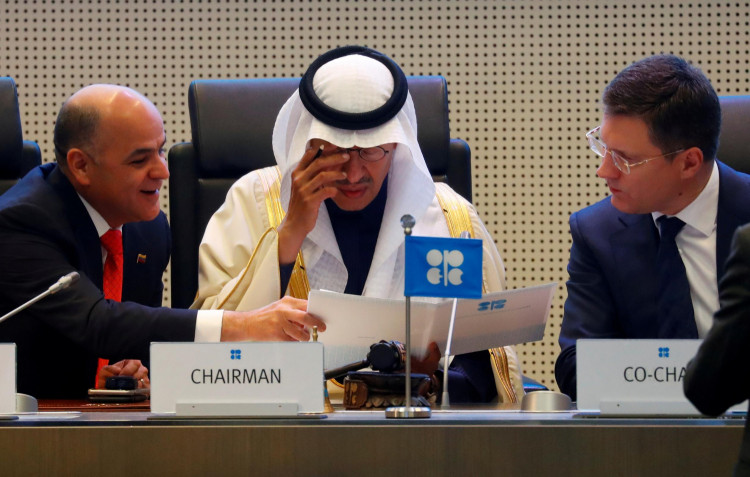The attempt by OPEC (the Organization of Petroleum Exporting Countries) to drive sagging oil prices upwards to compensate for the sharp drop in oil demand from China has been frustrated by Russia.
Persistent fears about the coronavirus negative effect on oil demand have sent oil prices again plunging into a bear market. Last week, oil plummeted into a bear market or one with a 20% decline from previous highs. Crude closed at a 13-month low of $49.61 on February 4. Brent was below $55 in recent days.
Oil demand from China, the world's largest oil exporter, has diminished as businesses scale back operations due to panic-like fears over contagion from the rampaging Novel coronavirus (2019-nCoV) outbreak. China's oil demand is estimated to have fallen by a massive three million barrels per day (bpd).
Car makers in China are set to open for business February 10 after the two-week-long holiday break due to the Chinese New Year holidays, but a number of large carmakers like Ford have announced they still won't be reopening Monday. The outbreak has also brought large parts of China's economy to a standstill.
Oil industry analysts concur the 2019-nCoV outbreak poses the greatest demand threat to the oil industry since the Great Recession of 2008. OPEC leader and heavyweight Saudi Arabia wants to negate the blow to demand from the coronavirus, and proposed more production cuts during three days of meetings in Vienna last week.
Russia, which wants to boost production to prop-up its floundering economy, is having none of this and instead is pressing OPEC for more time to study recommendations from the group's Joint Technical Committee.
In defying OPEC, Russia claims "they need more time" to study recommendations from the OPEC's technical committee and assess the impact of the coronavirus on the market. Instead of demanding Russia toe the line, OPEC instead came forward with a compromise proposal that will see Saudi Arabia cut oil production by 600,000 bpd, down from 800,000 to one million barrels, said a senior OPEC source to CNN.
The conflict between OPEC and Russia dashes hopes OPC will be able to arrest the sharp decline in oil prices.
The unrelenting spread of the coronavirus is a massive threat to OPEC because it's destroying demand in China, the world's largest oil importer and the epicenter of global oil demand growth. Analysts say the drop in demand this time is being triggered by demand destruction and not over supply.
"The coronavirus has completely taken the oil market hostage," said Michael Tran, director of global energy strategy at RBC Capital Markets. "The market is watching what OPEC does with bated breath. If OPEC is not able to stick the landing, it will have a big psychological hit to the market."






